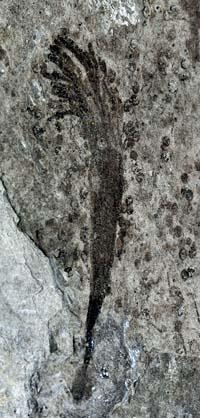The diversification and creation of pluricellular living beings occurred before the foreseen

Researchers from the Chinese Academy of Sciences and the State University of Virginia have discovered fossils in the form of seaweed 600 million years ago in the Chinese province of Anhui. The pluricellular eukaryotic beings discovered so far are 27 million years older than the oldest. In the journal Nature the finding was made known and it has been affirmed that at that time there was a rather rich biota, both taxonomically and morphologically: About 15 species of fossils have been differentiated and have come to the conclusion that they had a high degree of differentiation.
In view of these data, the researchers conclude that the diversification of pluricellular eukaryotic beings had to occur before the foreseen. As they have explained, it was considered that the oldest known pluricellular eukaryotes (known as Avalon biota) were diversified coinciding with the oxygenation of the deep oceans, in the middle of the Ediacara period (about 580 million years ago). However, it has now been proposed that if the current fossils, called Lantian formation, are 600 million years old, diversification had to occur at the beginning of the Ediacara period, just after the glaciation in Marino.
In addition, these beings have seen that they lived in shallow waters. Therefore, they have come to the conclusion that if such a complex biota has advanced the oxygenation of the oceans, it was so far more complex than expected. All these algae needed free oxygen to breathe and would not have been able to advance if the medium were anoxic. However, geochemical data indicate that at that time, in general, the medium was anoxic.
The researchers have explained in Nature this situation which by definition would be impossible: "Our proposal is that this environment was, in general, anoxic, but occasionally short periods with oxygen were created. Because the macro-eukaryotes took advantage of these periods and then, when the anoxic conditions returned, they died again".





